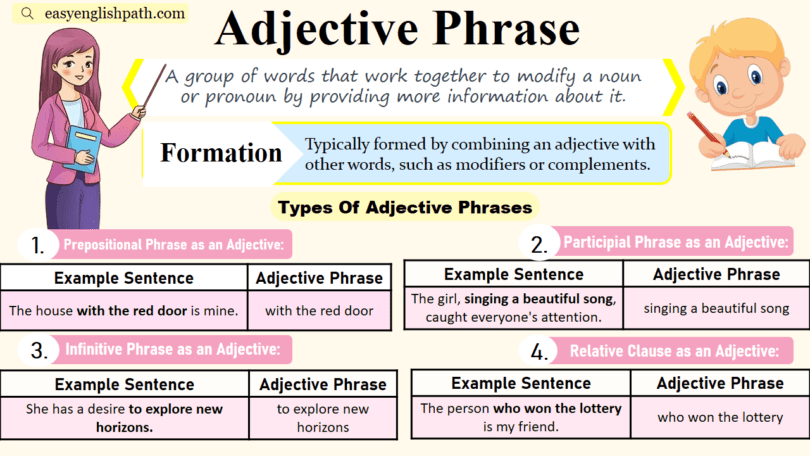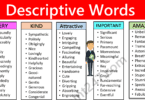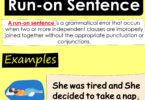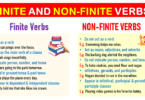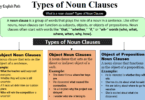What is an Adjective Phrase?
An adjective phrase is a group of words that collectively modify a noun functioning as an adjective. It typically includes an adjective and its modifiers.
- The furry cat napped lazily on the windowsill.
- In the garden, we found a sparkling fountain.
- She wore a dress with a vibrant floral pattern.
- The children were captivated by the gigantic, swirling whirlpool.
Difference Between an Adjective Phrase and an Adjective Clause
Adjective Phrase:
An adjective phrase is a group of words that function together as an adjective to modify a noun. It usually includes an adjective and its modifiers. An adjective phrase does not have a subject and a verb.
- She has a necklace made of gold.
- They live in a house bigger than ours.
- The car with the red stripes is fast.
- The man interested in the job is here.
- The book on the table is mine.
Adjective Clause:
An adjective clause, also known as a relative clause, is a group of words that include a subject and a verb. It acts as an adjective to modify a noun and usually starts with a relative pronoun like who, whom, whose, that, or which.
- The book that is on the table is mine.
- She has a necklace which is made of gold.
- They live in a house that is bigger than ours.
- The car which has the red stripes is fast.
- The man who is interested in the job is here.
An adjective phrase is a group of words that together modify a noun or pronoun, providing additional detail or description.
To identify an adjective phrase, look for a noun that is being described and a group of words that act together to provide that description, often including an adjective and its modifiers. For example, The book on the table is mine, the phrase on the table is an adjective phrase modifying ‘book’. Similarly, in ‘She wore a dress with beautiful embroidery, with beautiful embroidery is the adjective phrase describing ‘dress’
Types of Adjective Phrases:
- Attributive Adjective Phrase
- Predicative Adjective Phrase
- Possessive Adjective Phrase
Attributive Adjective Phrase:
An attributive adjective phrase is a group of words that describes a noun by providing extra information about its qualities. It is placed before the noun it modifies within the noun phrase.
- The cat found a spot in the sun with a warm blanket.
- We visited a beach with golden sand.
- His jacket had a pocket for his favorite pen.
- The mountain path had twisting turns.
Predicative Adjective Phrases:
A predicative adjective phrase acts like an adjective in the sentence’s predicate, coming after a linking verb (e.g., “is,” “seems”). It modifies the subject, unlike an attributive adjective phrase that modifies the noun directly before it.
- The room felt cozy.
- The flower looks vibrant.
- His story seemed unbelievable.
- The soup tastes spicy.
- I found my wallet on the kitchen counter.
- They admired her artwork in the gallery.
- We need to bring our umbrellas; it might rain.
- The cat played with its favorite toy all day.
Adjective Phrases Examples:
- The cat, sleek and agile, crept through the garden.
- His essay was remarkably persuasive.
- The morning air felt crisp and refreshing.
- She displayed a confident attitude.
- The cake was incredibly flavorful.
- The movie had a surprisingly twisty plot.
- The sunset painted the sky orange and pink.
- The new gadget is compact and powerful.
- The hiking trail led to a beautiful waterfall.
- Her laughter was joyful.
You May Also Like

